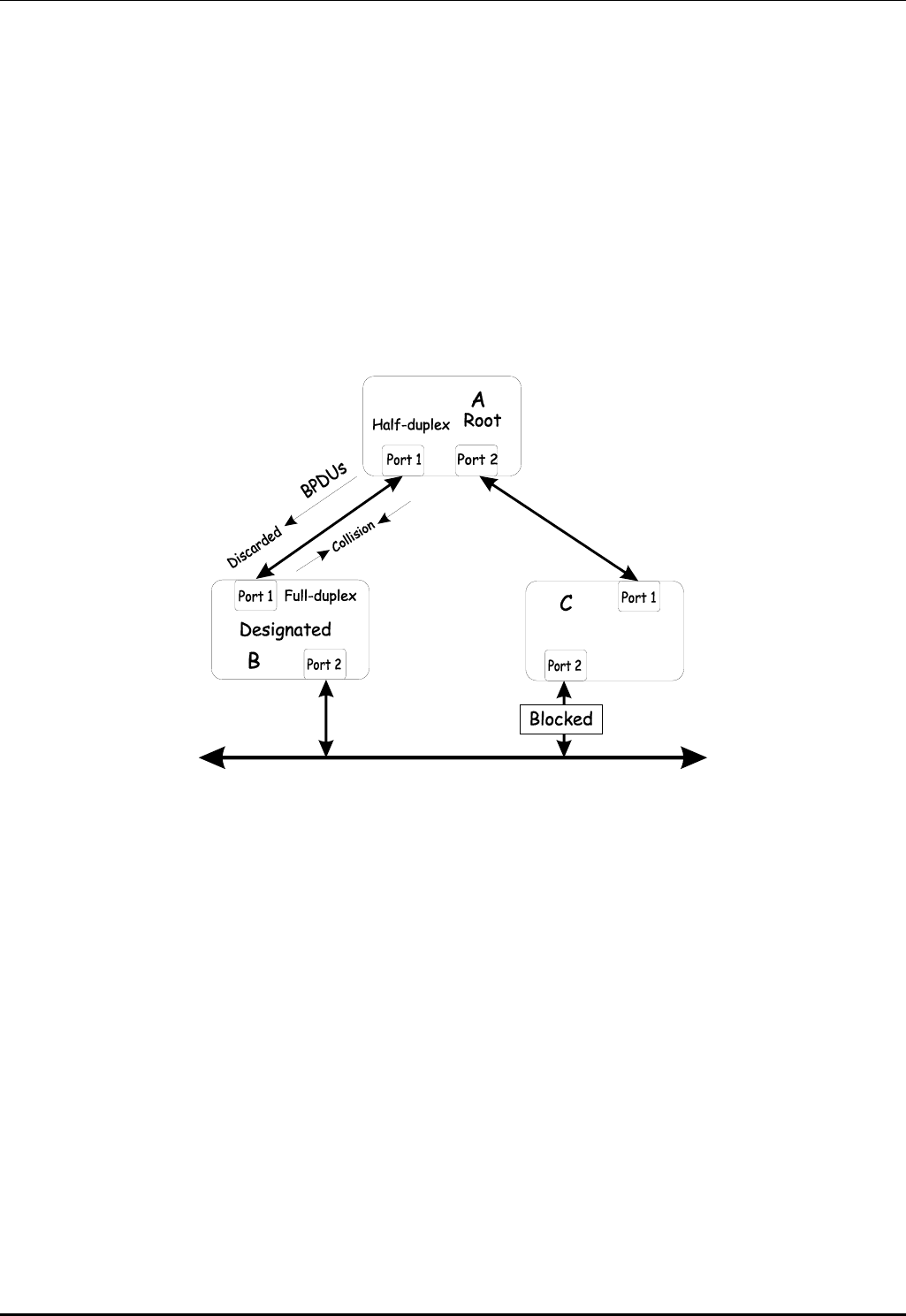
D-Link DES-3250TG Standalone Layer 2 Switch
In this example, B has been elected as the designated bridge and port 2 on C is in the blocking state. The election of B as the
designated bridge is determined by the exchange of BPDUs between B and C. B had a better BPDU than C. B continues
sending BPDUs advertising its superiority over the other bridges on this LAN. Should C fail to receive these BPDUs for
longer than the MAX AGE (default of 20 seconds), it could start to transition its port 2 from the blocking state to the
forwarding state.
It should be noted: A port must continue to receive BPDUs advertising superior paths to remain in the blocking state.
There are a number of circumstances in which the STA can fail – mostly related to the loss of a large number of BPDUs.
These situations will cause a port in the blocking state to transition to the forwarding state.
Full/Half Duplex Mismatch
A mismatch in the duplex state of two ports is a very common configuration error for a point-to-point link. If one port is
configured as a full duplex, and the other port is left in auto-negotiation mode, the second port will end up in half-duplex
because ports configured as half- or full-duplex do not negotiate.
In the above example, port 1 on B is configured as a full-duplex port and port 1 on A is either configured as a half-duplex
port, or left in auto-negotiation mode. Because port 1 on B is configured as a full-duplex port, it does not do the carrier sense
when accessing the link. B will then start sending packets even if A is using the link. A will then detect collisions and begin to
run the flow control algorithm. If there is enough traffic between B and A, all packets (including BPDUs) will be dropped. If
the BPDUs sent from A to B are dropped for longer than the MAX AGE, B will lose its connection to the root (A) and will
unblock its connection to C. This will lead to a data loop.
Unidirectional Link
Unidirectional links can be caused by an undetected failure in one side of a fiber cable, or a problem with a ports transceiver.
Any failure that allows a link to remain up while providing one-way communication is very dangerous for STP.
159


















